Essential Insights on Debit Card Fraud
Debit card fraud is a troubling reality where unauthorised individuals exploit someone else’s debit card for their gain. In the past year alone, the United States witnessed a staggering 83,000 instances of this type of fraud, as reported by the Federal Trade Commission’s Consumer Sentinel Network. This figure reflects a concerning 19% increase compared to the previous year, and experts predict this trend will only intensify in the coming years. Indeed, losses from bank card fraud are anticipated to exceed an alarming $165 billion within the next decade as fraudsters continually refine their techniques and tools.
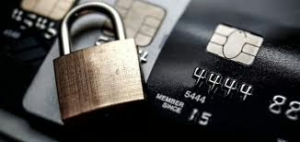
For many consumers, debit card fraud can seem like an issue that affects others but not themselves. However, this misconception can lead to complacency. The reality is that anyone can fall victim to such deceitful acts, which is why it is crucial to remain alert both in physical stores and online.
As we navigate the complexities of modern banking, it’s essential to recognise the various tactics employed by criminals. While a significant portion of debit card fraud occurs in cyberspace, unsuspecting victims can also be targeted while using their cards in person. The ultimate aim of these scammers is to obtain your debit card information, enabling them to drain your bank account without a trace.
To safeguard yourself from becoming a target, it’s vital to familiarise yourself with the methods that fraudsters employ to steal sensitive information.
One prevalent technique is skimming. The Federal Trade Commission estimates that skimming leads to annual losses exceeding $1 billion. But what exactly is skimming? This practice involves placing covert devices on ATMs, point-of-sale systems, and gas station pumps. These devices capture essential data and even record cardholders’ PINs. With this stolen information, criminals can create counterfeit debit or credit cards, enabling them to access victims’ funds.
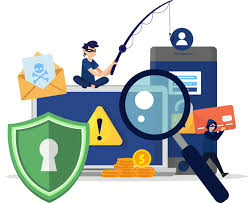
In this landscape of increasing threats, awareness is your best defence. By understanding the risks and recognising the tactics used by fraudsters, you can take proactive steps to protect your financial well-being. Stay informed, remain vigilant, and always prioritise security when managing your debit card usage—whether online or in-store.
What steps can you take to safeguard yourself?
1. If you want to shield your card from skimming at gas stations, the Federal Trade Commission (FTC) suggests opting for a pump near the store and within the attendant’s view. These pumps tend to be less appealing to skimmers who are looking to exploit unsuspecting customers.
2. To keep your information secure, shield the keypad with your hand while entering your PIN. Alternatively, consider going inside the store to make your payment rather than using the pump.
3. When you find yourself at an ATM or a point-of-sale terminal, it’s a good idea to perform a quick inspection for any signs of tampering. Look out for anything that appears loose, damaged, out of alignment, or scratched. If something seems off, it’s best to refrain from using that machine.
4. Generally, ATMs located in brightly lit indoor areas are less likely to be targeted by skimming devices. Again, covering the keypad while entering your PIN can enhance your security. Whenever possible, opt for cards equipped with chip technology for added protection.
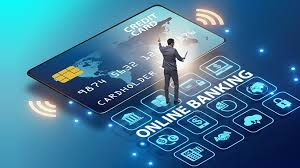
Phishing emails and messages have evolved significantly over time.
So, what exactly is phishing? It involves the deceptive practice of sending emails and texts designed to manipulate individuals into surrendering their financial details. The primary goal of phishing schemes is to entice you into clicking on a link that prompts you to log into your bank account or divulge your debit card information. This has become a prevalent form of fraud that many people encounter.
How can you protect yourself? Being vigilant online is crucial in defending against debit card fraud. As phishing emails and messages have grown increasingly sophisticated, distinguishing between genuine and fraudulent communications can be quite challenging. One effective strategy for minimising your risk when you receive a text or email is to evaluate whether you recognise the sender. Check if the number or email address corresponds with previous communications you’ve had with that company or individual. If it doesn’t match, this could be a strong indicator of a scam. Conversely, if you do recognise it, rather than clicking on any links provided, take the extra step to directly contact the company or visit their official website to verify the legitimacy of the message.
Hacking has emerged as a prevalent and often hidden method by which criminals seek access to your debit card information.
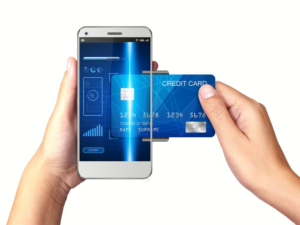
But what does hacking entail? When you engage in banking or shopping activities over public Wi-Fi networks, hackers can intercept your data.
In today’s digital landscape, where public Wi-Fi has become a staple of our daily lives, it’s essential to arm yourself with protective measures to safeguard your personal information. Imagine sitting in a bustling café, sipping on your favourite latte while connecting to the internet. In such moments, it’s crucial to remember that just as you wouldn’t leave your front door wide open, you shouldn’t leave your online presence vulnerable, either. Start by creating robust passwords—think of them as the locks on your doors. Whenever possible, enable two-factor authentication; it’s like having an additional security guard stationed at your entrance. Moreover, keeping your security software, operating system, and browser up to date is akin to ensuring that all your locks and alarms are functioning correctly. These precautions should also extend to your mobile phone, as it can be just as susceptible to threats. And always bear in mind, never input your credit card information on websites that don’t appear secure, nor should you store sensitive details in your browser.
Now, let’s delve into the unsettling reality of debit card fraud. Recognising the signs can be more straightforward than you might expect, provided you remain vigilant. Picture this: you’re reviewing your bank statements each month like clockwork, scanning for any unfamiliar transactions. Setting up bank alerts can act like a watchful eye, notifying you immediately if a purchase pops up that you didn’t authorise. In fact, using a credit card rather than a debit card could serve you well; after all, the reimbursement process for unauthorised charges is often swifter with a credit card.
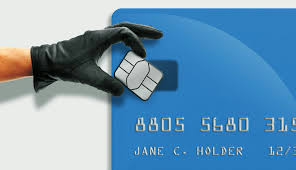
But what if you find yourself ensnared in the unfortunate web of debit card fraud? The first thing you should do is reach out to your card issuer without delay. Imagine the urgency as you dial your bank’s number, ready to report the fraudulent activity. Your bank will likely cancel your compromised card and issue a new one, which means once it arrives, you’ll need to update any automatic payments tied to that card—a small but necessary hassle in the grand scheme of things.
Next, consider placing a fraud alert on your credit report; this can feel like putting a guard outside your door. Speak to a financial advisor about contacting one of the major credit bureaus—Equifax, TransUnion, or Experian—to initiate this service. The beauty of this arrangement is that once one bureau is notified, the alert applies across all three reports. This free service ensures that any new lenders must verify your identity before opening accounts in your name. If you suspect that you’re at risk of further fraud or if your personal information may have been compromised, freezing your credit profile could be a prudent measure. This action would effectively shut down any attempts to open new lines of credit under your name.
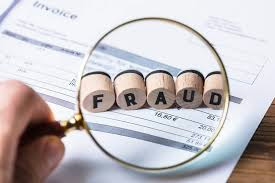
In these challenging times of digital vulnerability, remaining informed and proactive can make all the difference in protecting yourself from fraud. By taking these steps, you not only shield your finances but also regain peace of mind in an increasingly complex world.
In a world where digital transactions have become the norm, the shadow of debit card fraud looms ever larger, casting doubt on the safety of our everyday purchases. As technology evolves, so too do the tactics employed by fraudsters, leading experts to predict an unsettling rise in such incidents. Yet, amidst this rising tide of deceit, there lies a glimmer of hope for the cautious consumer.
Picture this: you’re at your favourite coffee shop, the aroma of freshly brewed coffee wafting through the air as you reach for your debit card to settle the bill. Unbeknownst to you, lurking in the shadows are individuals skilled in the art of deception, waiting for an unsuspecting target. But what if you could arm yourself with knowledge and awareness? By keeping a watchful eye on your transactions and being alert to any unusual activity, you can create a barrier between yourself and those who wish to exploit your trust.
So, as you navigate through this landscape fraught with potential danger, remember that vigilance is your best ally. By adopting proactive measures and staying informed, you can significantly reduce your chances of falling victim to this growing menace. You may evade the statistics that haunt so many others, becoming a beacon of awareness in a world where caution is increasingly essential.
Maxthon: Your Trusty Ally in the Digital Expedition
As we embark on our journey through the dynamic and ever-evolving world of the internet, diving into this expansive digital landscape can feel like setting off on an exhilarating quest into uncharted territory. Having a reliable web browser is essential for navigating this vast online realm with confidence and security.

Enter Maxthon, a remarkable browser explicitly designed for Windows 11 users. This innovative tool seamlessly integrates with the operating system’s advanced features, offering a wealth of unique functionalities that enhance your online experience.
At the core of Maxthon’s mission is a steadfast commitment to user privacy and security. Equipped with an impressive array of privacy-focused features, it empowers users to roam the internet freely while ensuring that their data remains protected from unwanted scrutiny.
What truly distinguishes Maxthon in the crowded world of web browsers is its unwavering promise to provide powerful tools without cost. With a user-friendly design tailored for everyone, it offers easy access to essential resources needed to navigate the complex web of information and connections that the online world presents.
With Maxthon accompanying you on this digital adventure, you’re not merely browsing; you’re engaging in a secure and fulfilling exploration through the limitless expanses of cyberspace. Each click reveals discoveries as you traverse a landscape where information flows like a mighty river, and connections arise like bridges spanning vast divides. Throughout this journey, Maxthon serves as your steadfast companion, guiding you safely through every twist and turn in this boundless digital universe.
The post How To Spot Signs Of Debit Card Fraud Before It Strikes appeared first on Maxthon | Privacy Private Browser.